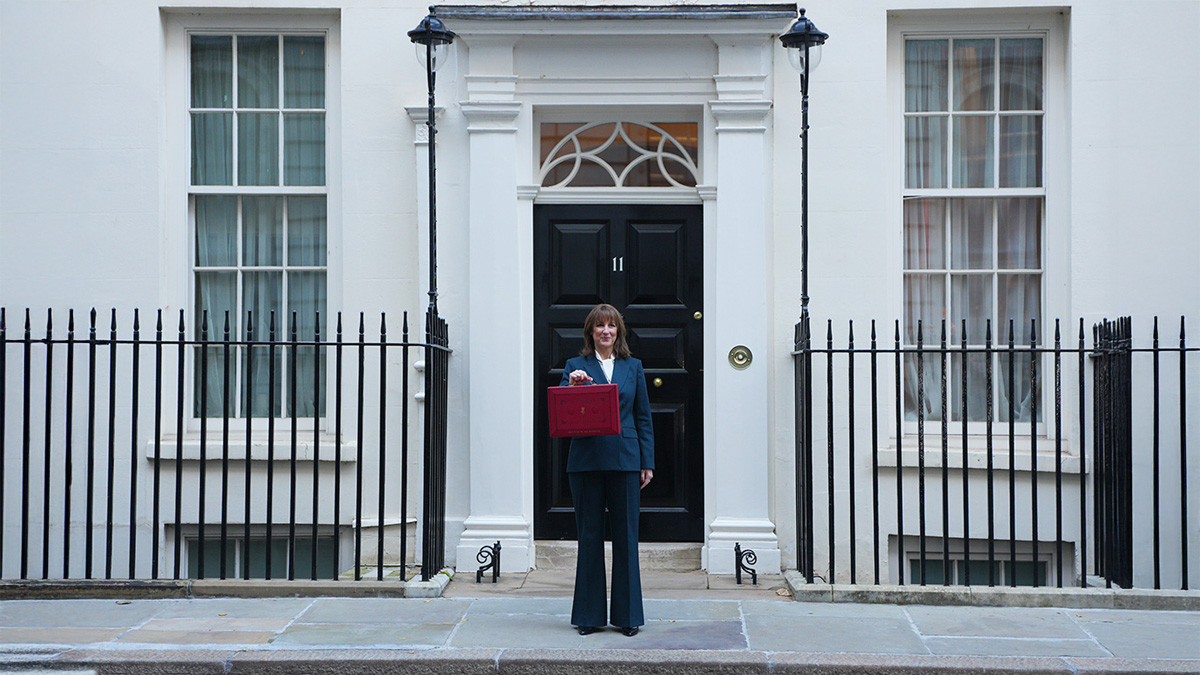
In early March, the retailer Boots informed its office-based staff that it would require them to be back in work five days a week from September. Its CEO, Seb James, argued that the office is “more fun and inspiring” when everyone is there, claiming it is better for company culture.
He is not the only boss insisting staff make a return to the office. Virgin Media O2 Business’s Movers Index reveals that four in 10 companies are back in the office full time, while even more are insisting staff decrease the number of days they work from home.
This push for an office return comes despite the introduction of the Flexible Working Bill, which came into effect on 6 April. It grants workers the right to request flexible working – which could be location or hours – from day one of a new job.
And it is even though staff want to work flexibly. As Peter Cheese, CEO of the Chartered Institute of Personnel and Development (CIPD), explains: “Expectations of our workforces have changed and the opportunity to work in flexible ways is high on people’s list when looking at job opportunities.
“Supporting flexible working is now an important part of the employee value proposition in attracting talent, but also in retaining them.”
But with so many companies making a push to physically see more of their staff, is there an advantage to offering more remote and flexible work? We speak to some of the companies still offering remote work on why it’s important and how they see the debate unfolding.
Employment Hero: Communication is key
Like many companies, HR firm Employment Hero introduced remote-working policies during the pandemic out of necessity. But it soon began to question why it previously had a “magnet to the office”?
It now offers a policy that lets people work from wherever they like within a fixed time zone. That is to enable cross-team and company-wide communications, which UK MD Kevin Fitzgerald says is increasingly important as the business expands globally.
Team leaders send daily updates, while Fitzgerald himself records short videos to send to staff – who also send him ones back with relevant updates.
“The art of communication comes down to the clarity with the first port of call," he says.
We have to make sure team leaders’ communication is crystal clear. Our success comes down to how effective and clear the communication is across the business, and across time zones and jurisdictions.
Kevin Fitzgerald, Employment Hero
While remote work is seen as a boon for many – it isn’t for everyone. Fitzgerald admits it has had some difficulties with people who join and then realise that it doesn’t work for them. He says, “It can be challenging for people when they come into a business.”
But it won’t be changing its policy any time soon because it believes it is right for the business and its staff. “We are really proud that we can offer this to people. We have found talent all over the world and it’s great,” he says. “I love being remote. I’ve got a two-and-a-half-year-old boy, I get to see him in the morning, lunchtime, and evenings.”
Beyond: The office is ‘really inefficient’
The digital product agency Beyond now describes itself as “remote-first” but that hasn’t always been the case. CEO and co-founder Matt Iliffe says: “If you had asked me in 2017, I would have said we will always be office-based because it was important for us to all be together."
However, Iliffe temporarily left the business in 2019 and when he returned in 2020, six months into the pandemic, he found that the company had transitioned seamlessly into this new way of working. He recalls: “I was really struck when I came back about how efficiently the business was running and how well remote work had been working for us.”
Now, Iliffe believes the office to be “really inefficient” for a myriad of reasons, including travel, scheduling conflicts, and the need to book meeting rooms. Plus, because Beyond is a global business, remote work saves time and money and means everyone is easily accessible.
Having someone in London partnering with someone in San Francisco, unless you want to spend a lot on airfare they’re always going to be working remotely together
Matt Iliffe, Beyond
While remote working does throw up challenges in areas such as time differences, like Fitzgerald he believes effective communication is the solution. The company holds a weekly meeting that it calls ‘in the loop’ where teams update each other. Plus, he believes ‘watercooler moments’ can still happen remotely if companies have the right tools, such as Slack.
While Iliffe doesn’t envision its remote policy changing, he does keep it under review and looks for ways to make improvements. "I love the idea that people can do what they do from anywhere,” he says.
Harper James: The importance of trust
Unlike the previous two companies, the commercial law firm Harper James was set up with a remote operating model. More than 90% of its team are fully remote, with only the sales team in Sheffield and a team in Birmingham sorting through post needing to go into an office.
CEO Toby Harper says the remote work model was born out of necessity because he needed access to a small talent pool of lawyers that could work flexibly, including getting paid when there was work and not when there wasn’t. The firm now employs more than 130 people but has maintained the policy, which lets staff work where and when they want – although they need to be available when clients need them.
Our culture is very much built around freedom and flexibility and being trusted.
Toby Harper, Harper James
Harper says one of the key challenges of remote work is that it can “take people a little bit longer to feel fully connected and embedded” in the business. However, for Harper, this is easily solved with a budget that lets teams meet up once a month, with travel and accommodation paid for.
Harper thinks it is likely that more firms will call people back to the office but believes this offers him a competitive advantage. “The future, as far as my business is concerned, is going to embrace, lean into and invest more in remote-working practices,” he concludes.
Toikido: Focusing on flexibility
For many, the Covid pandemic was a time of fear and uncertainty. But for entrepreneurs like Darran Garnham, it was the perfect time to start a business.
He set up his entertainment company, Toikido, just over three years ago and believes the post-Covid world has made it easier for him to run: “A lot of our business is international and pre-Covid that would have meant I was on a plane every other week, but the pandemic made people used to having meetings on Zoom.”
Garnham runs Toikido on a “flexible trust policy”, meaning that the assumption is the work that’s required to get done, gets done. The firm has two “hot hubs” – one in Bristol and the other in London – which employees can use but a presence there isn’t mandated.
Once again, communication is key, so Toikido has daily meetings at 10 am where his 16-strong team meet, which he believes helps to foster a “collaborative office environment”.
We move faster and we are more together than any office I’ve ever worked in. With all the sluggishness that an office environment can bring, I think we’ve been able to move more nimbly and quicker.
Darran Garnham, Toikido
Domestic & General: Helping managers manage
Domestic & General implemented its “everyday flexibility” policy in June 2022. The firm went fully remote during the pandemic but came back to a hybrid model that it quickly found wasn’t working and led to hours spent in management meetings discussing in-office days.
“It was a really unproductive time,” says CEO Matthew Crummack. The policy allows staff to work from wherever they are most productive, whether that be at home, hybrid or in the office.
One area that requires work is management, due to the different challenges thrown up by having to manage remote teams. “We’re having to help managers be a little bit more thoughtful about how to best lead people and lead teams,” he admits.
Going forward though, the aim for Domestic & General is to be “more flexible, not less”, in part because he believes that’s how it attracts the best talent.
As other companies start to require people to be back in the office, it’s causing a shake out of people who aren’t willing to work like that anymore.
Matthew Crummack, Domestic & General
He says he has noticed the company has more choice at the top of the funnel when hiring and that flexibility is now key to its employee value proposition. “I don’t envisage a moment when we go back,” he concludes.
Three takeaways
Communication
Whether you are a global company with thousands of employees, or a start-up employing less than 10, it is evident that communication is at the heart of successful remote working.
For Fitzgerald at Employment Hero, success “really comes down to how effective and clear the communication is across the business.” Whether that is through short videos and daily updates like Employment Hero or regular meetings like Beyond and Toikido, communication is the foundation for company alignment.
Find reasons to come together
While this may seem to negate the theme of remote working, it is evident that occasional in-person meetings benefit employees. Harper James, for example, provides each team with a budget to come together each month plus two big firm-wide parties each year, while Domestic & General holds regular socials. Creating a culture remains key.
Trust your talent
One big advantage of offering remote work is access to talent, both because many people want to work more flexibly but also because a firm isn’t limited by the location of its office. Once that talent is in the door, it has to be trusted to get what needs doing done and work in a way that is most productive for them.
Related and recommended

Healthcare and income tax require radical reform, but the Budget revealed little ambition to tackle the big issues

Bob Skinstad’s journey from rugby prodigy to business leader is shaped by scrutiny, setbacks and second chances

After a decade as editor-in-chief, Katharine Viner is using her business acumen to reinvent The Guardian

The prime minister and chancellor may be safe for now but Cabinet ministers believe it’s a case of when, not if, they fall

